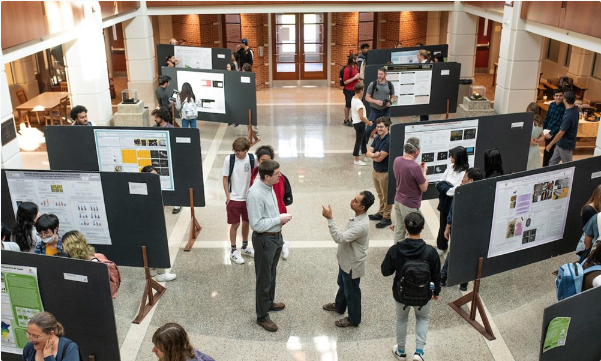Date of Award
4-2020
Document Type
Thesis
First Advisor
Jim Mills
Second Advisor
M. Scott Wilkerson
Third Advisor
Ernest R. Smith
Fourth Advisor
Lydia Marshall
Fifth Advisor
Edward Myers Dolan
Abstract
Thousands of pottery sherds have been excavated by the Cincinnati Museum Center from the Hahn Site (Ohio Archaeological Site #33HA10), located near Newtown, Ohio. These potsherds, created by Native Americans, show a variety of temper materials, including fragments of limestone, shell, grog, and rock debris from glacial outwash. To better understand changes in the pottery-making technique, transitions and advancements in temper material, and possible economic and trade indicators, ceramic petrography and geochemical analyses were used to determine temper variability. A single archaeological feature from the site was chosen as a case study, Feature 146. This feature is a depression that was likely used as a refuse pit, believed to have been filled between A.D. 677 – A.D. 1443. The petrographic data presented here reveals gradual changes in temper composition and ceramic characteristics in the Hahn Site pottery over time. In analyzing these patterns and temper transitions, excavated levels can be grouped together based on similar ceramic aspects, such as the boundary between Levels 1 – 4 and Level 5 of Unit 27, and Levels 1 – 3 and Levels 4 – 8 of Unit 35. The groupings of levels revealed by this data correspond to cultural stratigraphic horizons identified in the field by archaeologists during excavation. These horizons, referred to as Upper and Lower Zones, each align with the depths of temper transitions seen via petrographic analysis. Sharp distinctions between Levels 4 and 5 of Unit 27 suggest evidence for outside influence of nearby Native American nations in the Midwest. As a whole, the data collected through this project reveal ceramic petrography as a viable method of identifying ceramic sherd temper and pottery characteristic transitions over time, through a process that is minimally destructive to Native American pottery.
Recommended Citation
Lutz, Shelby C. 20, "Fort Ancient and Woodland Pottery from the Hahn Site, Hamilton County, Ohio: A Petrographic Analysis of Chronological Changes in Ceramic Temper" (2020). Honor Scholar Theses. 149, Scholarly and Creative Work from DePauw University.
https://scholarship.depauw.edu/studentresearch/149
Included in
Archaeological Anthropology Commons, Geochemistry Commons, Other History of Art, Architecture, and Archaeology Commons



Comments
Honor Scholar Thesis